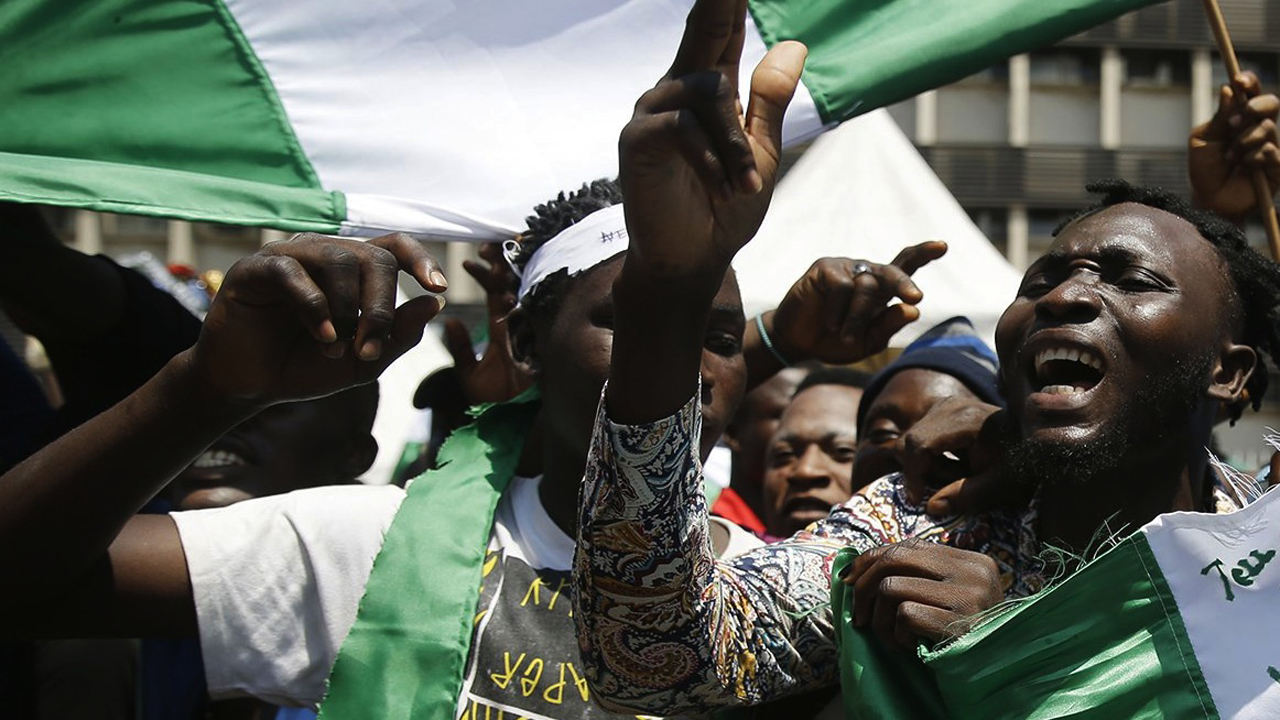With just five days left before Nigeria’s federal elections on 25 February, citizens are weighing up their choices as they prepare to select a new president. Most will be looking for a representative who puts the country’s interests ahead of their own personal gains.
Such a candidate may be hard to find. Nigeria’s democracy has been characterised by flawed primary elections, monetised politics and unkept promises that give ordinary people limited options. The poor state of democratic institutions has also left citizens with little recourse. Will this change after Saturday’s polls?
Although the three leading candidates — Peter Obi, Atiku Abubakar and Bola Tinubu — are from different parties, their political trajectories are linked. The Labour Party’s Peter Obi was the vice-presidential candidate for Atiku Abubakar’s People’s Democratic Party in the 2019 elections. From 2014 to 2017, Abubakar was a prominent member of Bola Tinubu’s All Progressives Congress (APC), the current ruling party. Abubakar was also the 2007 presidential candidate of the Action Congress of Nigeria, Tinubu’s party before the APC was formed.
The leading candidates have all served the government in different capacities. Tinubu was governor of Lagos State from 1999 to 2007, Abubakar was Nigeria’s vice-president in the same period, and Obi was governor of Anambra State from 2006 to 2014.
They have also all been named in financial scandals. Tinubu has been accused of tax evasion and money laundering in his dealings with Lagos State. Abubakar’s name appears 60 times in a report by the United States Senate on foreign corruption, where he was tied to money laundering offences. Obi was among the public servants alleged in the Pandora papers exposé to have committed tax evasion.
The candidates have mostly denied any wrongdoing — referring to their ‘track records’ in government as evidence that they are the most qualified to lead the country. However, their conduct should be scrutinised even beyond their time in office. This would reveal how they might approach responsive governance and accountability if elected.
Visit Daily Maverick's home page for more news, analysis and investigations
One metric is their accountability towards citizens. Both Tinubu and Abubakar are generally dismissive of their corruption allegations. When told that Nigerians were curious about the source of his wealth, Tinubu made vague references to inheritance and investment, and suggested that questioners were ‘envious.’ Abubakar received his most recent accusations of corruption with indifference. His response to an audio recording in which he appeared to be arranging to divert state funds while in office was that it was ‘nothing new.’
When asked about allegations of tax evasion in the Pandora papers, Obi denied any illegality and segued the discussion into his penchant for ‘saving money’ as a public official. He took a similar approach when asked about controversial investments of state funds in businesses in which his family had interests. He insisted the investments were profitable and in the state’s best interests.
Another test of the candidates’ approach to responsive governance is their handling of the 2020 #EndSARS protests. The campaign was primarily against police brutality and represented a period of heightened civic engagement among young Nigerians. Both Tinubu and Obi were forced to answer questions about their direct or indirect involvement in the situation.
The perception was that Tinubu had indirectly influenced the shootings that took place on 20 October 2020 when protesters were found to have been killed by state forces. He was quick to deny the claims. When Obi was asked why he didn’t curb violations by Anambra State’s notorious Awkuzu SARS police unit when he was governor, he said that because the police were a federal entity, he had no control over them.
Public engagement is a component of responsive leadership, and the candidates’ campaigns have differed in their approaches. On one extreme is Obi, who constantly participates in dialogues and seems almost too available to media platforms. His spokesman, Dele Farotimi, says Obi is the ‘most interviewed candidate.’ On the other extreme is Tinubu, who has mostly spoken to foreign media. Abubakar has a more moderate approach and is generally available.
Beyond elections, other democratic institutions also have an important role in enforcing accountability on elected and appointed officials. That means the focus must be sustained on strengthening institutions to ensure that public interests are protected.
The Independent National Electoral Commission is responsible for organising transparent elections without interference and manipulation. Ideally though, the heightened civic engagement triggered by the 2023 electoral cycle should be maintained after the polls, irrespective of who emerges as president.
A consistent demand for accountability by citizens, the media and civil society can help ensure that Nigerians are not at the mercy of elected officials’ whims. Only then can the country move towards a truly responsive government that serves the interest of the people. DM
Teniola Tayo, Consultant, Institute for Security Studies (ISS) Regional office for West Africa, the Sahel and the Lake Chad Basin, Dakar.
This article is funded by the Government of the Netherlands.
First published by ISS Today.




 Nigerians youths are among citizens calling for greater accountability and improvements in governance across the nation. (Photo: Supplied by ISS Today)
Nigerians youths are among citizens calling for greater accountability and improvements in governance across the nation. (Photo: Supplied by ISS Today)